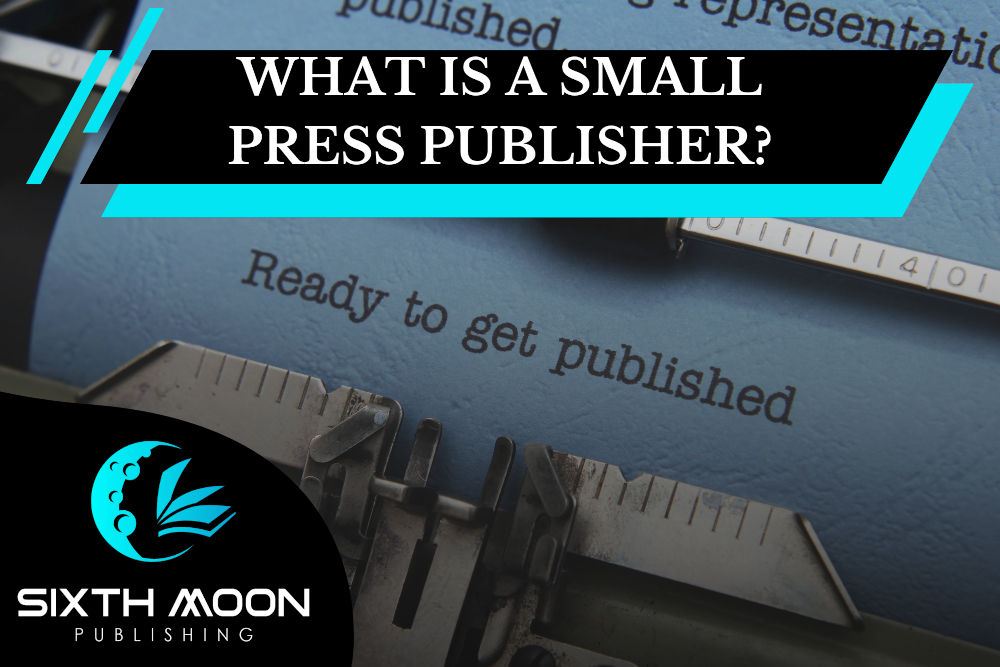Small press publishers play a vital role in the publishing industry. They provide a platform for emerging authors, niche genres, and innovative literary works that might not find a home with larger, more mainstream publishers. These independent publishers often prioritize artistic merit and diverse voices over commercial potential, contributing to a vibrant and varied literary landscape.

Small Press Publishers in the Publishing Industry
Small press publishers distinguish themselves from major publishing houses in several ways. These independent book publishers typically operate on a smaller scale, with a more focused scope and a specialized approach to the types of books they publish.
What Distinguishes Small Press From Major Publishing Houses
A small press sets itself apart from major publishing houses through its specialized focus and curated selections. They often prioritize niche genres, unique voices, and experimental styles that may not align with the mainstream preferences of larger publishers.
Additionally, small presses typically maintain a more intimate and collaborative relationship with their authors, offering personalized attention and creative control throughout the publishing process. This hands-on approach allows for greater flexibility and innovation in the development and promotion of each book.
The Scale and Scope of Operations for Small Presses
Small press publishing companies tend to release a limited number of titles each year, allowing them to devote more attention and resources to each individual book. This focused approach enables them to cultivate a distinct identity and build a loyal readership within their niche.
Exploring the Types of Books Small Press Publishers Focus On
Smaller presses often center around specific genres, themes, or literary styles. By specializing in particular areas, such as science fiction and fantasy, these smaller publishers establish themselves in their chosen fields. This targeted focus allows them to attract authors and readers alike who share their passion.
The Evolution of Small Press Publishing Over Time
Over the years, small press publishing has undergone significant transformations, shaped by historical milestones, technological advancements, and the influence of key ps and movements.
Historical Landmarks in Small Press Publishing
The small press publishing industry has a rich history marked by significant landmarks that have shaped its evolution. The rise of independent publishers paved the way for the promotion of avant-garde literature and counterculture movements. The advent of internet publishing and print on demand technology revolutionized the industry, enabling small presses to produce books more efficiently and cost-effectively. This technological shift allowed for greater diversity and experimentation in the types of books being published.
The Digital Revolution and Its Impact on Small Presses
The digital revolution has had a profound impact on small-press publishing. The rise of e-books and online distribution channels has enabled small presses to reach a wider audience beyond traditional brick and mortar bookstores. This expanded market access allows these small publishers to compete on a more level playing field with larger publishing houses.
Digital technology has also streamlined the production process for small presses. Print on demand services and digital printing have reduced the need for large paperback or hardcover print runs and inventory storage, making it more cost-effective for small publishers to bring their titles to market.
Small Presses and the Author’s Journey
For authors, navigating the publishing world can be a daunting task, but small presses like Sixth Moon Publishing offer a unique and supportive ecosystem that nurtures both new and established writers. From the initial submission process to the final distribution of their work, small presses provide authors with a personalized and collaborative experience.
How Small Presses Work With New and Established Authors
Small presses strive to provide a nurturing environment for new authors, offering personalized attention and guidance throughout the publishing process. They work closely with these emerging writers to refine their manuscripts, provide editorial feedback, and help them navigate the intricacies of the industry.
For established authors, small presses offer a creative haven where they can explore new literary directions and experiment with unconventional styles. These presses value the artistic vision of their authors and collaborate with them to bring their unique stories to life, ensuring that the final product aligns with the author’s intended message and aesthetic.
Future Trends Impacting Small Press Publishers
As the publishing industry continues to evolve, these small independent publishers are poised to face a range of emerging trends that will shape their future. From the increasing role of technology in the publishing process to the new challenges and opportunities that lie ahead, small presses must adapt and innovate to remain competitive in the ever-changing literary landscape.
The Growing Role of Technology in Small Press Publishing
Technology is playing an increasingly important role in the operations of small press publishers. From digital production and distribution to online marketing, advertising, and social media engagement, small presses are leveraging technological tools to streamline their processes and reach wider audiences.
The adoption of print on demand services and e-book platforms has enabled small presses to reduce costs, minimize inventory risks, and expand their global reach. These technological advancements have leveled the playing field, allowing small publishers to compete more effectively with larger publishing houses.
Emerging Challenges and Opportunities for Small Presses
Small press publishers face a range of emerging challenges and opportunities in the rapidly evolving publishing landscape. One significant challenge is the increasing competition for readers’ attention in a crowded digital marketplace, where self-publishing and online content consumption have become more prevalent. Small presses must develop innovative strategies to differentiate themselves and capture the interest of their target audiences and keep them reading.
On the other hand, the rise of social media and online communities presents new opportunities for small presses to engage directly with readers and build loyal followings. By leveraging digital platforms to showcase their unique offerings, share behind-the-scenes insights, and foster meaningful interactions with their audience, small presses can create a strong brand identity and attract new readers.
Sixth Moon Publishing as a Small Press Publisher
Sixth Moon Publishing is a small publisher specializing in the genre of science fiction as well as fantasy. We’re dedicated to helping our authors bring their stories to life and reach a broader audience. We also want to help other authors learn how to set themselves apart from the crowd to find their readers. It’s our goal to help each author realize their vision and ensure their novel gets the attention and recognition it deserves.
Through a combination of creativity, professionalism, and attention to detail, Sixth Moon Publishing has established itself as a trusted partner for authors looking to publish their work. Whether you’ve published before or if you’re just starting your journey as a writer, Sixth Moon Publishing offers the expertise and support you need to turn your manuscript into a polished and successful book.

